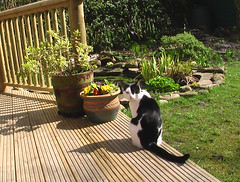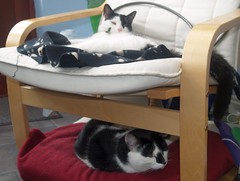I have been an EndNote user/ supporter for years, but I’ve been very impressed with what I have seen of RefWorks so far. RefWorks have given me long term trial access while I’m researching for my Fellowship, so I am using the opportunity to use both products as a researcher. One aspect of RefWorks which I really like is RefShare – the ability to share a database of references. Just as a test, I thought I would share some of the references I have been reading for my research project with readers of my blog. You can see them by clicking here. The list isn’t complete – I’ll be adding to it over the next few months and as I add them, this database will automatically update.

Great tits in the garden









